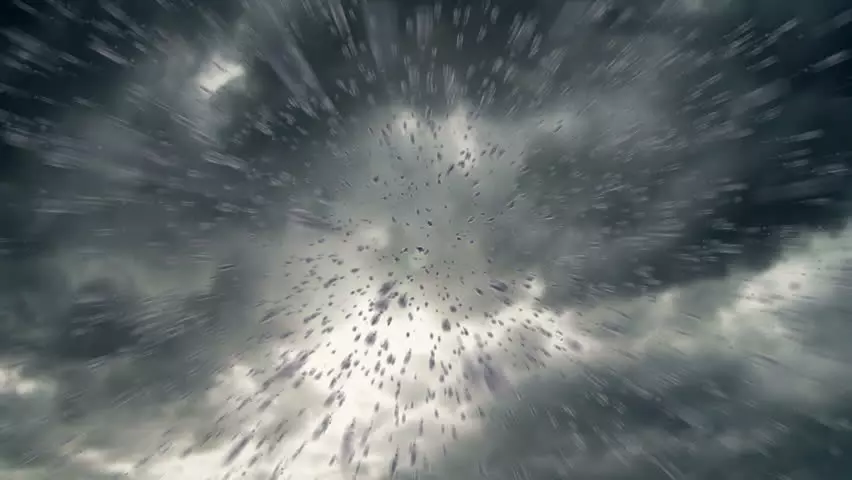


China’s meteorological authorities frequently attract criticism and jokes, and their latest forecast has been ridiculed even more than usual after a very serious rainstorm was predicted in Beijing.
According to an announcement released by the National Meteorological Center of China Meteorological Administration (NMCCMA) on June 20, several provinces and cities in the northern part of the country, including Beijing, were supposed to receive heavy rainfall between June 21 and 24. Beijingers prepared for the storm ahead of time, expecting a deluge to offer relief from the oppressive summer heat. However, as of press time, the forecasted massive storm has yet to arrive. Rain has been lighter than expected, especially in the city center.
Reacting to the as-yet-unrealized forecast, many people took to the internet to complain about Chinese forecasters’ unreliability. Under the hashtag “FocusOnBeijingRainstorm,” which had garnered over 440 million page views as of press time, many netizens made jokes about NMCCMA, calling the institute a waste of tax money that offers not even a shred of benefit to the public. The situation was exacerbated by reports from some media outlets that exaggerated the power of the storm, calling it an “unprecedented disaster with true destructive power.”
In response to these doubts and rumors, NMCCMA issued several articles on its Sina Weibo page, explaining their miscalculation to the public.
“The forecast accuracy depends on the content of the prediction. NMCCMA has a forecast accuracy of 86.31 percent to predict whether it is going to rain or not, but the forecast accuracy for a rainstorm in the next few hours is only 21.8 percent. Though that number may sound ridiculously low, even in the U.S., a country with advanced technologies, the number is only 27 percent,” read one of the articles.
According to NMCCMA, the accuracy of rainstorm predictions is a global problem, as heavy rain typically lasts only a very short period, and the calculation method for forecasts is not sufficiently accurate to pin it down.
Denouncing the criticism and rumors, NMCCMA called on the public to keep faith in authorities, criticizing media outlets for spreading unprofessional and misleading information.
“Due to the unstable status of the weather system (low accuracy of the forecast) and the sensitive location of the rainstorm (capital and populated areas), we worry about stepping up to announce authoritative information, which has led to the loss of our voice and initiative. We do not interfere in the discussion of weather among meteorological enthusiasts, but media outlets should not spread false information,” wrote NMCCMA.
Meanwhile, the Beijing Cyberspace Administration of China announced on June 22 that it will crack down on the propagation of unauthorized weather forecasts, as, according to Chinese law, no private organizations or individuals have any authority to issue meteorological forecasts to the public.
 Fire brigade in Shanghai holds group wedding
Fire brigade in Shanghai holds group wedding Tourists enjoy ice sculptures in Datan Town, north China
Tourists enjoy ice sculptures in Datan Town, north China Sunset scenery of Dayan Pagoda in Xi'an
Sunset scenery of Dayan Pagoda in Xi'an Tourists have fun at scenic spot in Nanlong Town, NW China
Tourists have fun at scenic spot in Nanlong Town, NW China Harbin attracts tourists by making best use of ice in winter
Harbin attracts tourists by making best use of ice in winter In pics: FIS Alpine Ski Women's World Cup Slalom
In pics: FIS Alpine Ski Women's World Cup Slalom Black-necked cranes rest at reservoir in Lhunzhub County, Lhasa
Black-necked cranes rest at reservoir in Lhunzhub County, Lhasa China's FAST telescope will be available to foreign scientists in April
China's FAST telescope will be available to foreign scientists in April "She power" plays indispensable role in poverty alleviation
"She power" plays indispensable role in poverty alleviation Top 10 world news events of People's Daily in 2020
Top 10 world news events of People's Daily in 2020 Top 10 China news events of People's Daily in 2020
Top 10 China news events of People's Daily in 2020 Top 10 media buzzwords of 2020
Top 10 media buzzwords of 2020 Year-ender:10 major tourism stories of 2020
Year-ender:10 major tourism stories of 2020 No interference in Venezuelan issues
No interference in Venezuelan issues
 Biz prepares for trade spat
Biz prepares for trade spat
 Broadcasting Continent
Broadcasting Continent Australia wins Chinese CEOs as US loses
Australia wins Chinese CEOs as US loses